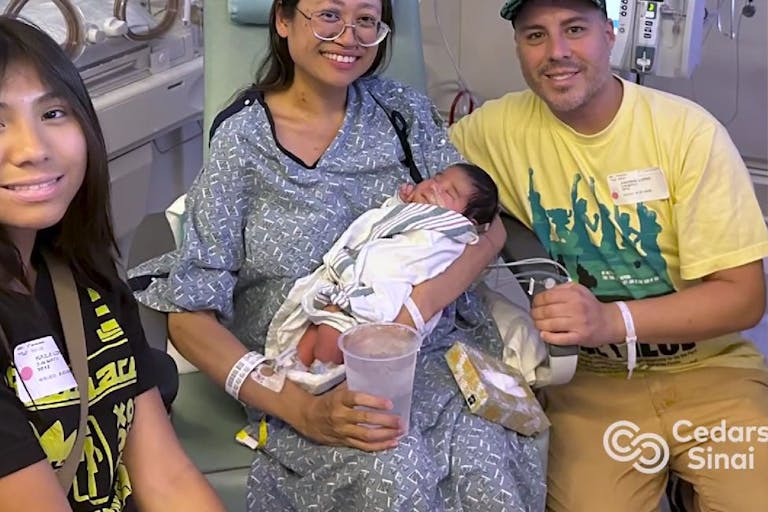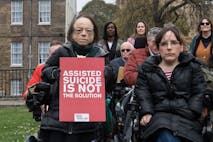
Full term 'miracle' baby born after 'unprecedented' ectopic pregnancy
Bridget Sielicki
·
Netherlands makes it easier for doctors to euthanize patients with dementia
In 2017, international outrage erupted after a doctor in the Netherlands forcibly euthanized a patient with dementia. After being drugged with a sedative, the doctor urged the woman’s family to hold her down as she fought for her life — and then killed her. The doctor, Marinou Arends, eventually faced charges, though she was acquitted — to great applause in the courtroom. Nevertheless, the case made clear that euthanasia laws in the Netherlands needed to be changed, and ultimately, they were; unfortunately, the changes only made it easier for doctors to kill their patients.
Arends eventually came forward in an interview, in which she explained why she killed her patient. The elderly woman did have an advance directive, saying she wanted to be euthanized if she was admitted to a nursing home due to dementia, and if she thought the time was right. Arends said the woman constantly complained that she wanted to die, but said it was “going a bit far” when Arends repeatedly asked her if she wanted to actively be killed. But instead of respecting what the woman said, Arends decided she was incompetent, and took action to kill her anyway.
The court declared that Arends acted in “good faith,” while Jacob Kohnstamm, chairman of the Regional Review Committee, agreed with the court case so there would be “more clarity on how such cases are handled in the future.”
READ: Netherlands political party wants euthanasia process to happen faster
Article continues below
Dear Reader,
Have you ever wanted to share the miracle of human development with little ones? Live Action is proud to present the "Baby Olivia" board book, which presents the content of Live Action's "Baby Olivia" fetal development video in a fun, new format. It's perfect for helping little minds understand the complex and beautiful process of human development in the womb.
Receive our brand new Baby Olivia board book when you give a one-time gift of $30 or more (or begin a new monthly gift of $15 or more).
That clarification has evidently come, as KNMG, the Royal Dutch Medical Association, has decided doctors should be able to more easily kill their patients with dementia. The Association amended its official position on euthanasia, to include euthanizing patients with an advance directive requesting euthanasia, but who are deemed “unable” to make their wishes clearly anymore. Doctors can now use their own “personal and professional assessment,” essentially allowing them to decide on their own whether or not to kill a patient with dementia — even if, as Arends’ victim did, the patient repeatedly says they do not want to be killed.
This is yet another example of how dangerous legalized euthanasia truly is. Once we begin to decide that some lives simply aren’t worth living, it doesn’t take long to decide that a life isn’t worth protecting and saving, either. Persons with dementia are still living persons, whether or not they can express their wishes clearly or require round-the-clock care. Their lives have value and meaning and dignity regardless of whether or not a doctor assigns meaning to their lives.
“Like” Live Action News on Facebook for more pro-life news and commentary!
Live Action News is pro-life news and commentary from a pro-life perspective.
Contact editor@liveaction.org for questions, corrections, or if you are seeking permission to reprint any Live Action News content.
Guest Articles: To submit a guest article to Live Action News, email editor@liveaction.org with an attached Word document of 800-1000 words. Please also attach any photos relevant to your submission if applicable. If your submission is accepted for publication, you will be notified within three weeks. Guest articles are not compensated (see our Open License Agreement). Thank you for your interest in Live Action News!

Bridget Sielicki
·
Issues
Nancy Flanders
·
International
Angeline Tan
·
International
Angeline Tan
·
International
Cassy Cooke
·
International
Cassy Cooke
·
Analysis
Cassy Cooke
·
International
Cassy Cooke
·
International
Cassy Cooke
·
Politics
Cassy Cooke
·
Pop Culture
Cassy Cooke
·